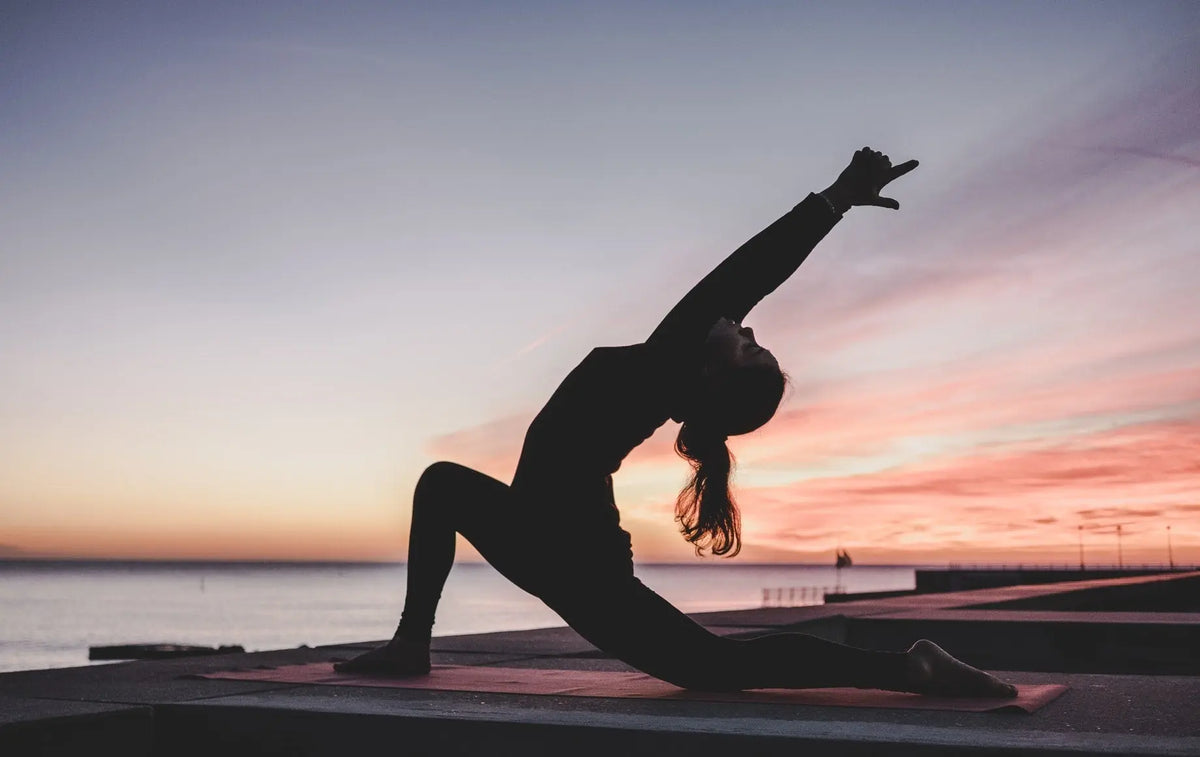
5 Incredible Benefits of Practicing Yoga Before Bedtime
|
Time to read 3 min
This store requires javascript to be enabled for some features to work correctly.
Written by: Eloise Brooks
|
Time to read 3 min
Do you suffer from insomnia? Have you tried almost anything you can think of to drift off to sleep? Well, maybe yoga is the solution for you. We’re now a week into the new year so let’s get started on accomplishing our new year’s resolutions! A lot of people want to learn new skills over the new year, and one with countless benefits is yoga. We are particularly interested in how beneficial it can be for sleep. Here are our theories on the top five sleep benefits of yoga.
This is a practice of judgment-free awareness in the moment. Mindfulness is a common component of many types of yoga. The cultivation of mindfulness has roots in Buddhism, but most religions include some type of prayer or meditation technique that helps shift your thoughts away from your usual preoccupations toward an appreciation of the moment and a larger perspective on life. Mindfulness can increase melatonin levels, and is in fact proven to be beneficial to your mental and physical health in a number of different ways. Many mindfulness routines include focusing on your breathing, which is a key aspect of yoga. Your breathing must be accurate for you to be able to relax in the poses, so the breath is equally important as the physical pose.
Yoga may help to put your body in a calm state, known as the relaxation response. This is the opposite of the fight-or-flight response. Doing calming yoga poses may help you to relax and enter a lower state of arousal. This may cause you to have lower blood pressure and lower amounts of the stress hormone cortisol. A routine may help to alleviate stress-related concerns such as weight gain, anxiety, and insomnia.
Yoga is a natural alternative to pharmaceutical sleep aids that are often given to older adults. Researchers in a 2013 study looked at the long-term effects of practicing yoga in older adults. They found that practicing yoga regularly both improved quality of sleep and improved overall quality of life. Where western medicines promote the use of pharmaceuticals, trying to incorporate practises such as yoga could be a good step before trying chemical alternatives. However if you think the yoga isn’t helping, or if you are at any risk, better to see your doctor and check what they think about adding it to your health routine.
Practicing yoga regularly can help you to manage symptoms of insomnia. You may be able to fall asleep quicker, sleep for longer, and go back to sleep after waking up at night. Research from 2019 points to the effectiveness of yoga and other mind-body therapies in treating insomnia and promoting better sleep. In addition to yoga, people who practiced meditation, tai chi, and qigong experienced improved sleep patterns.
Frequent movement is an important element of sleep hygiene. Moderate exercise several times a week has been shown to improve overall sleep. Working out before bedtime has usually been discouraged. It was thought that exercising later in the day could make it harder to fall asleep and have a good night's sleep. However, recent studies have found that moderate-intensity exercise won't impact your sleep if you complete it at least an hour before bedtime. This makes yoga an excellent addition to your routine, as it is a low impact but still highly effective way to exercise. If you are someone who hates cardio but still wants to feel comfortable in your body, this practise could be for you. Plus, unlike a gym workout, you don't need much in the way of equipment, so it can be done just about anywhere.
Yoga has been shown to help people of all ages with their sleep hygiene. With over 55% of people who practise yoga reporting better sleep. Doing it before bed rather than at any other time in your daily routine may be extra beneficial. As your body may be more open and flexible in the later hours of the day. However, if you don’t have time to incorporate it into your nightly routine, doing yoga at any point in the day can still have sleep benefits. It can help to reduce stress, leading to a more restful night’s sleep.
Receive 10% off your first order when you subscribe to our newsletter


